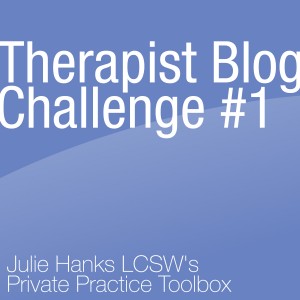A picture IS worth 1000 words. Find a credible infographic that is helpful to your ideal client for your next blog post.
Visually interesting and sharable infographics can provide easily digestible information for your blog readers. It's easy to find infographics on a variety of topics by doing a Google search of your area of interest and the word "infographic".
Many infographics are easily sharable with the HTML code and a copy function near the infographic. Another option for adding the infographic to your blog post is to right click and copy the "copy image location" and insert into your blog post (If you have no idea what I'm talking about contact your webmaster for help).
It is best practices to post a link back to the site where the infographic was originally posted. I've shared a few infographics below as examples that you are free to use for your blog post. Write a few sentences, embed the infographic, and you're done! This is the easiest challenge yet!
Additional reminders about the 2013 blog challenge
Write and post your blog article in the next 2 weeks. If you miss the deadline or you read this article months later, that’s OK too.
- Post a link for this blog challenge in the comment section of this blog post.
- Read, comment, and share other therapist’s articles.Tweet your post using hashtag #therapistblog and tag @julie_hanks so I can retweet it.
- Pin it on the challenge Pinterest Board. I’ve invited everyone who posted a comment on the initial blog challenge post as collaborators so you can pin onto the group board.
- Spread the word and invite mental health colleagues to join the challenge. Articles can be added anytime throughout the year.
- Write no more than 600 words, make it easy to read, use a conversational tone, and gear your articles toward your ideal client (not other professionals).
- The goal of a professional blog is to provide value to your website visitors, help them get to know your professional perspective, increase traffic to your private practice website, and build your practice.
Here are a few examples of infographics on 3 different topics. This first is from Sharecare Now and is the one and only appearance on an infographic. Feel free to use any of these for your post or search for your own!
Top 10 Online Influencers: Depression

http://www.sharecare.com/static/sharecare-now-depression-graphic
The Science of Mental Illness










As healers, we genuinely like to do our work. Guiding clients through the therapy process and seeing them make progress is why we do what we do. But if you're in private practice, you know there's a lot going on in the back end and that it's crucial to run an efficient and organized business.